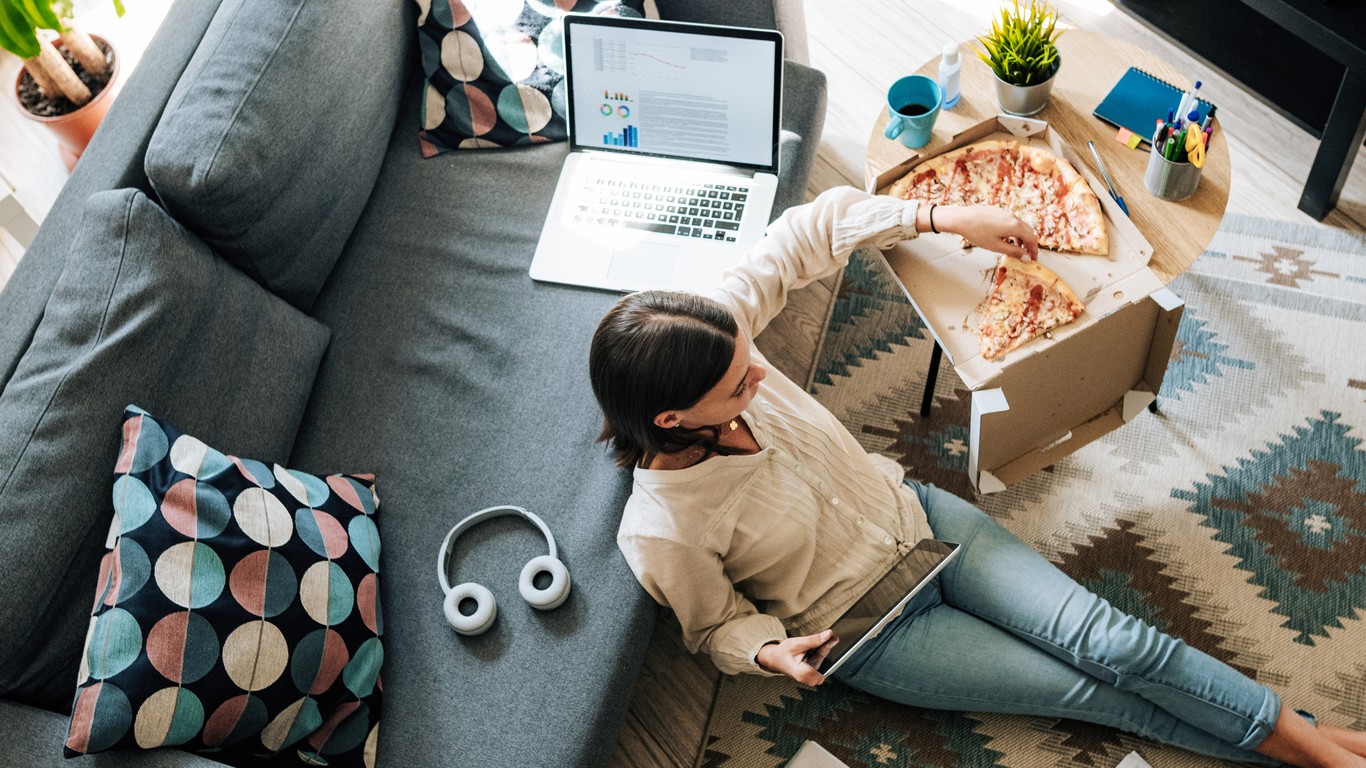The coronavirus pandemic is slowly releasing its grip on people’s lives as states have been reopening and a few are even allowing employees to return to the office. People are still, however, strongly encouraged to work remotely. So, working from home is here to say, at least for a few more weeks.
That may be bad news for people who hoped to resume their old routine and finally shed the extra pounds they packed on during the lockdown. While there is really just one way to slim down — eating less and moving more — there are several tips to try to not gain any weight while working from home.
There’s no denying that resisting the urge to snack when the kitchen is at your disposal 24/7 is hard work. Eating a balanced diet is key to keeping the weight off, but not all foods and drinks are created equal – these are some “healthy” foods that are actually ruining your diet.
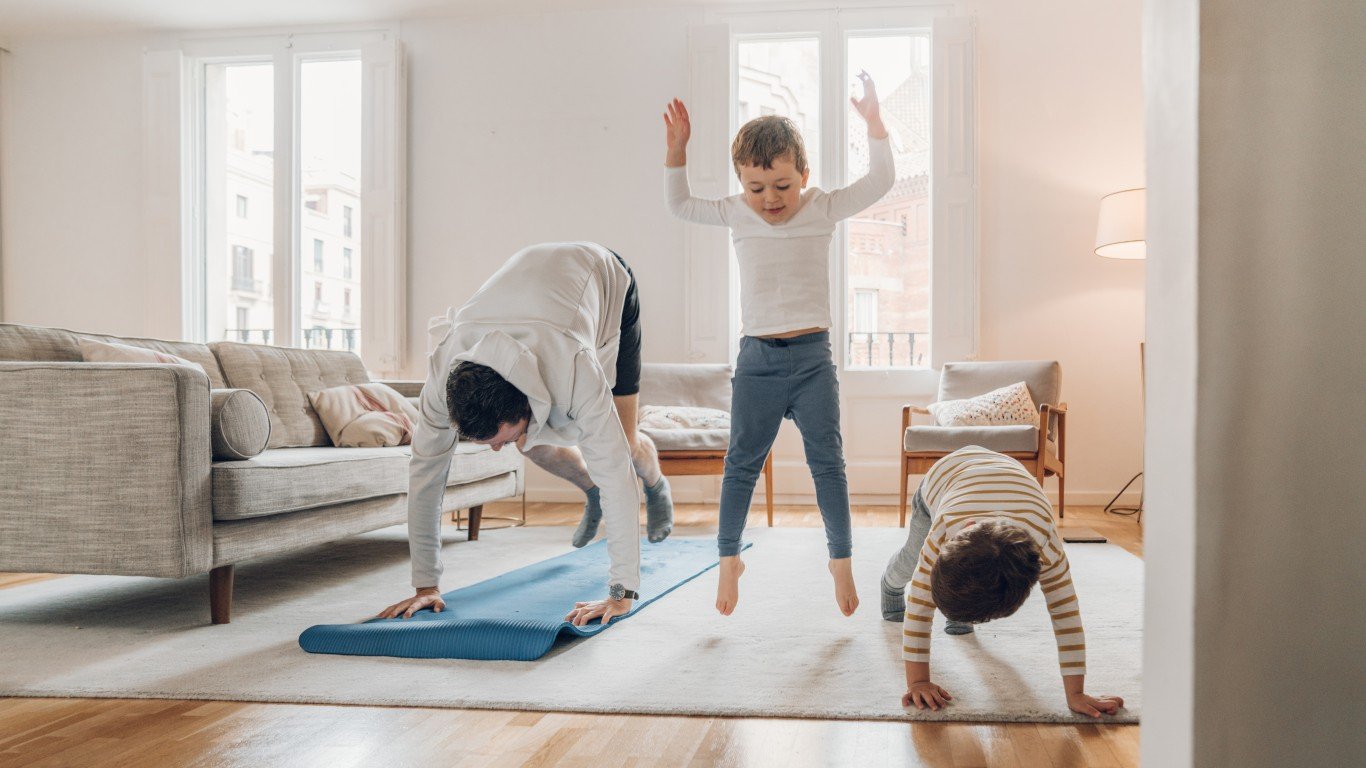
1. Set an alarm for fitness breaks
You may have promised to yourself that you are going to exercise at 2 p.m., but it’s easy to lose track of time when you’re involved in work, so set an alarm. Better yet, set a timer for every two hours or so for short bursts of exercise. According to the new Physical Activity Guidelines for Americans published by the Department of Health and Human Services, small exercise sessions are also beneficial.
A recent study published in the British Journal of Sports Medicine suggests that people doing high-intensity interval training (HIIT) — which means brief but intense exercise periods, separated by rest or lower intensity exercise periods — lose more weight than those who work out for a longer period of time.

2. Wear clothes with a tight waistband
It’s tempting to change from your night pajamas to your day pajamas. Few other types of clothing are more comfortable. But the comfort is a slippery slope. Pajamas don’t show you if you are gaining weight. So put on regular work clothes — or at least jeans, pants, or skirts that are tight around the waist — to make sure they still fit. If the clothes get tighter, that may be the wakeup call you need to start exercising or be mindful of what you eat.

3. Stick to an eating schedule
By now, you’ve probably worked from home for a couple of months and may have noticed how easy it is to snack all the time. After all, the kitchen is only a few feet away. Unfortunately, the body doesn’t differentiate calories from snacks and those from meals — it takes them all. So try to maintain the same eating schedule you had while you were going to the office. Have breakfast, lunch, and dinner at the same time. Set an alarm for lunch time if you have to or put a sign on the fridge door saying “Not time for lunch, yet!”

4. Go on a lunch break
Spending extensive periods of time sitting is a lot worse for your body than it seems. Along with the back and neck pain come extra pounds around the waist. (One study found that for every two hours women spent watching TV daily, they had a 23% higher risk of becoming obese.) So go on a lunch break — as you would if you were at the office. Do some yoga, go on a short run, go for a walk around the block, go up and down the stairs, or do jumping jacks. Just keep your body moving.

5. Don’t eat at your workspace
Eating lunch at your desk is a bad idea, and not just because it’s a distraction that possibly makes you less productive. There is some evidence that suggests that being distracted while eating — whether working or playing a video game — may dampen people’s memory of lunch, causing them to eat more. So separate your lunch and work, and do each in a different room.
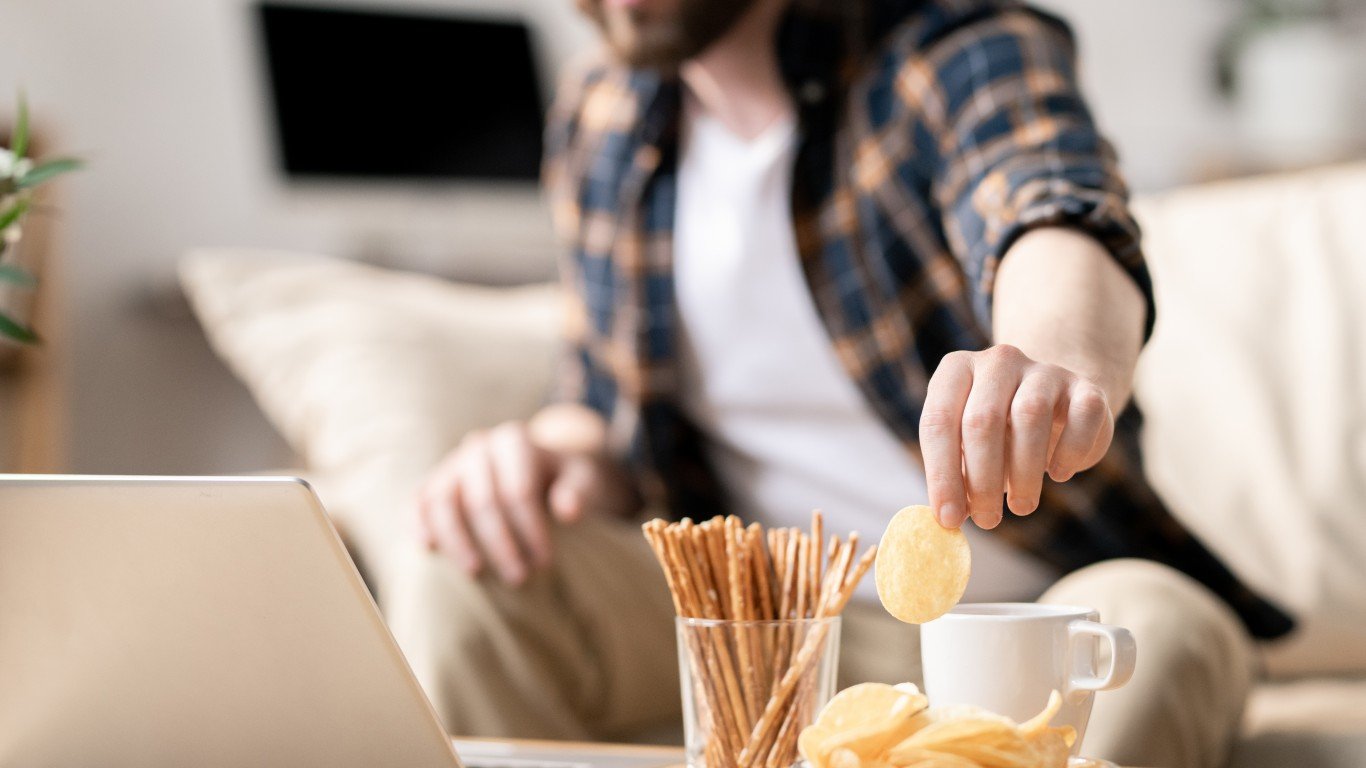
6. Put snacks into containers
Packing snacks into containers may prevent you from losing control of your portions. Snacking on cookies, nuts, chips, pretzels, grapes, or whatever else you like straight from the bag or the original packaging may lead to absentminded eating, which tends to lead to overeating. So prep your snacks to help you stay within a healthy calorie range.

7. Do activities you enjoy
It’s no rocket science that the more you enjoy an activity the more likely you are to stick to it. So experiment — do different exercises or activities that involve full-body movements — so it doesn’t feel like you’re working out, which can feel like a chore if you don’t enjoy it. Experiment until you find the activity you enjoy. Those of you who hate running should know that walking is also an aerobic activity, which means you are exercising just by walking.

8. Set up a workout area
Create a workout area, preferably in the living room, bedroom, or anywhere you spend a lot of time. Seeing a yoga mat, a bunch of weights, a jumping rope — or whatever exercise equipment you have — will motivate you to actually use it. Designate boundaries so your entire home does not feel like an office, prompting you to start answering emails as soon as you wake up.

9. Get enough sleep
Lack of sleep and weight gain often go hand in hand, according to science. Short sleep durations have been linked to higher levels of ghrelin, commonly known as the “hunger hormone” because it increases one’s appetite, and to lower levels of leptin, a hormone that signals the brain you’re full.
Research has shown that sleep-deprived people also consume more calories than usual, mainly from snacks, which tend to be rich in carbs, salt, and sugar. Lack of sleep messes with fat cells’ ability to respond to insulin, which regulates energy, eventually leading to weight gain. In addition, people who sleep less are more tired and less likely to exercise, which is linked to weight gain and obesity.

10. Drink a lot of water
Water may not be the tastiest beverage out there, but it sure is among the most important for your health. Its many benefits include helping maintain a healthy weight. Water is a natural appetite suppressant, according to one study on overweight women. Water may also help reduce overall liquid calorie intake, which helps in gaining less weight over time especially when substituting sugary drinks.
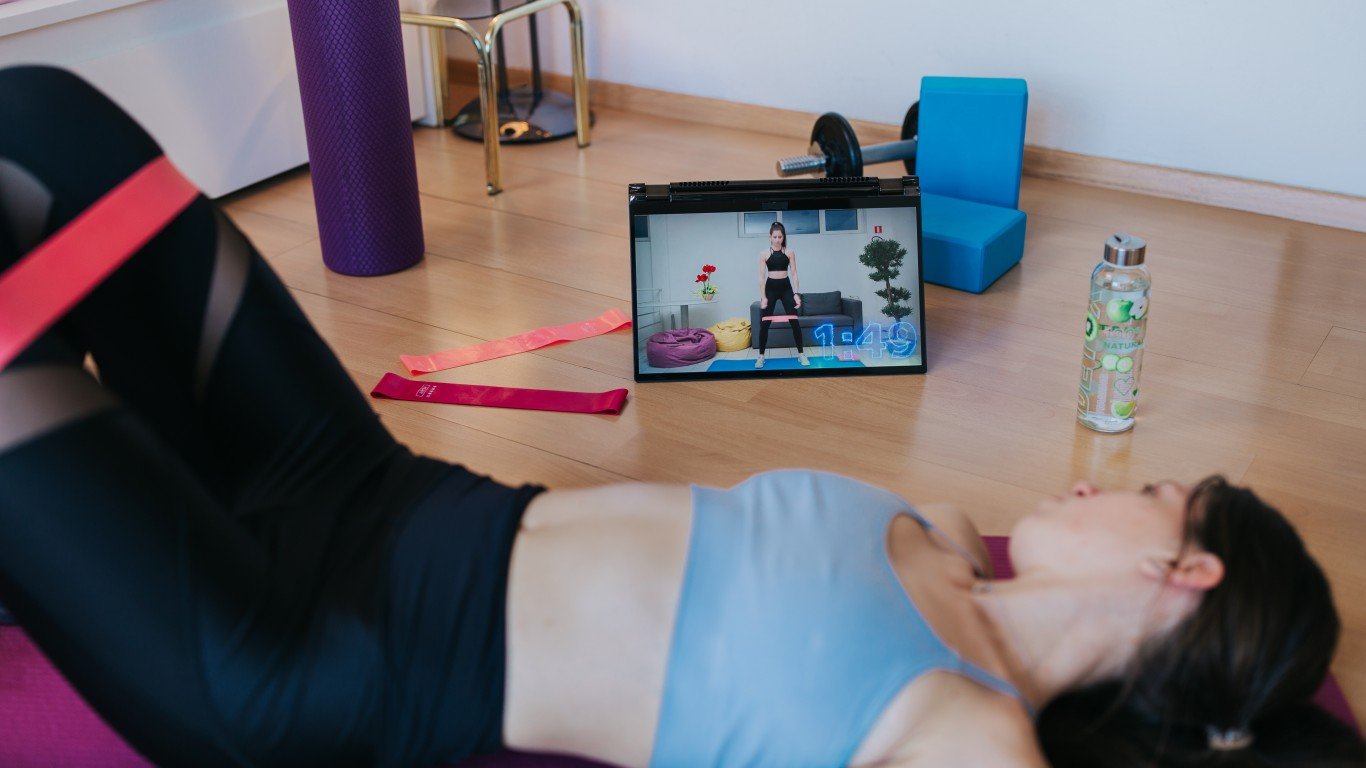
11. Sign up for online classes
Gyms are reopening in some states, and in some even personal training sessions are resuming. Still, many people remain concerned about getting close to others and sharing equipment. And while you tried to work out independently, there’s nothing like a class or a coach to keep you motivated. (You may have tried to work out at home and not skip workouts, but no doubt, it hasn’t been easy.) Signing up to online classes can keep you both motivated and accountable while keeping you safe. Many fitness coaches offer classes online. Sometimes a workout buddy, even if he or she is online, is all you need to stay motivated.

12. Set up your workspace far from the kitchen
It may be a good idea to set up your workstation as far from the kitchen as you can. This way, it is easier to avoid whenever the need to snack comes on strong. Being away from the kitchen may also help you avoid wandering into it when you’re just bored and not hungry. Wherever you set up, at the very least make sure the fridge is not in sight.
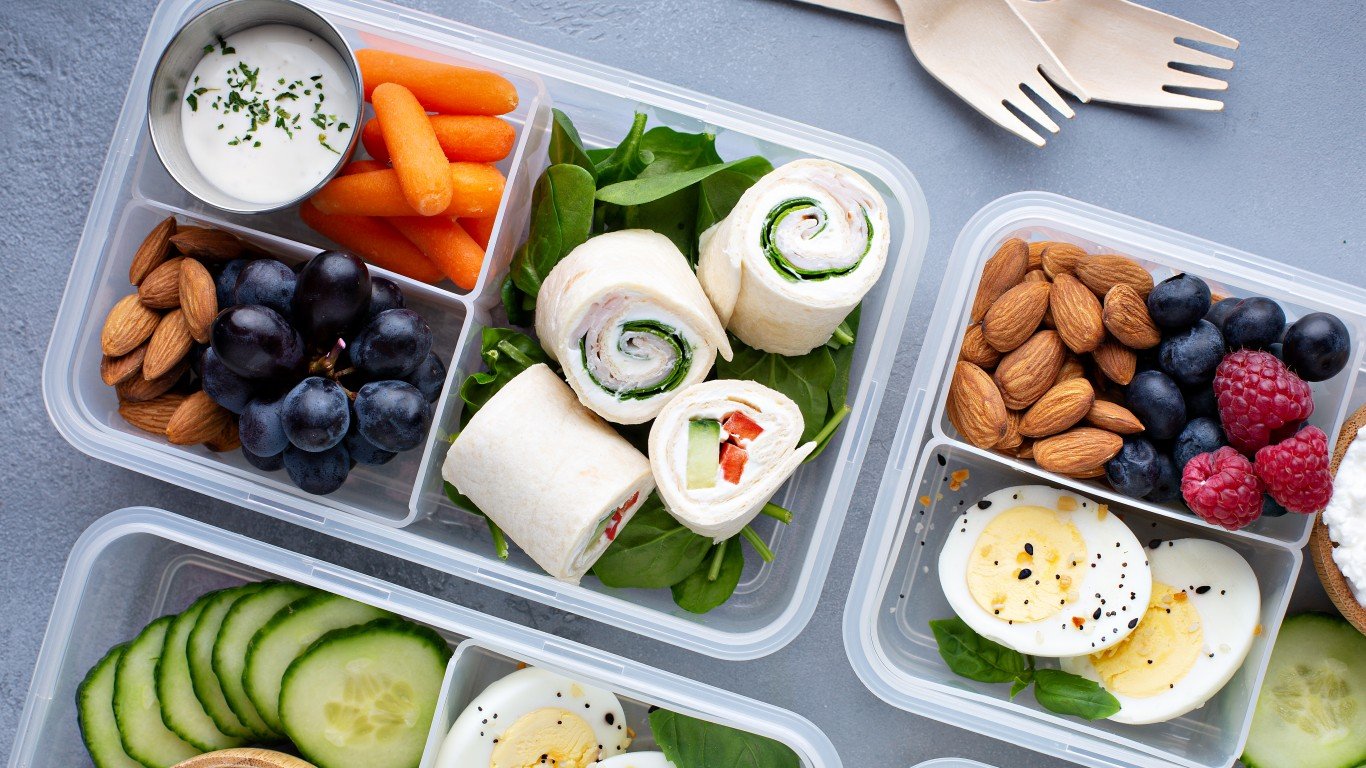
13. Plan your snacks
You are going to snack — it’s inevitable. Just accept that and try to plan for it as much as you can. Cut up some apples; put tempting snacks out of sight; get the veggies in sight. Set up so you have healthy snacks available to you at arm’s reach. This may decrease the amount of time you stare in the fridge, thinking of excuses to have that cold leftover pizza.

14. Wear exercise clothes
It’s fine if you don’t want to wear a suit when you’re working from home, but at least put on your workout leggings. Wearing exercise gear instead of the cozy and very loose pajamas may motivate you to use them and work out.
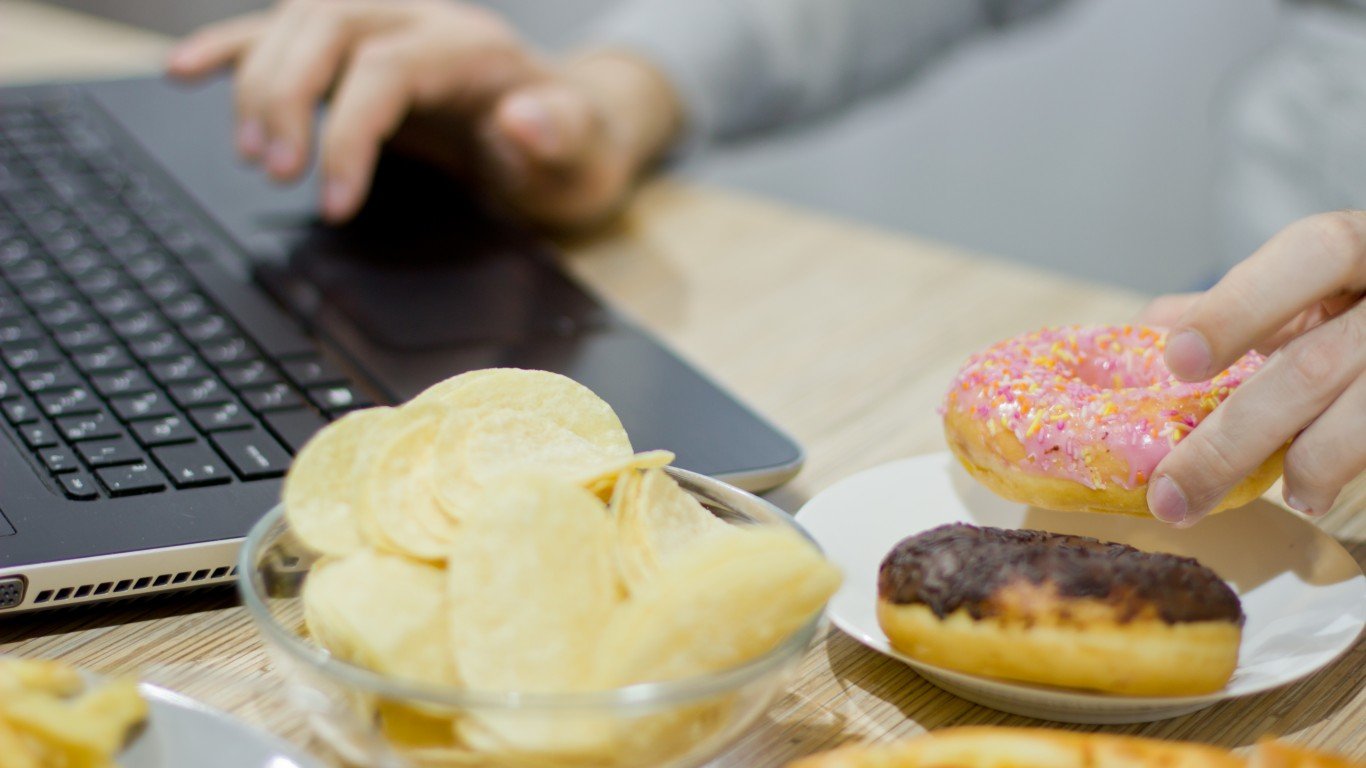
15. Don’t keep junk food in the house
Out of sight, out of mind. Having chips, candy, and other unhealthy snacks in the house makes it much harder to avoid eating them. So help yourself eat healthier by not keeping junk food in the house. This way, you can be certain you’re not going to consume them later.

16. Make smoothies
You can still have work and snack while keeping your calorie intake in check — and also while getting some healthy fruits and vegetables in your body. Just make yourself a smoothie. However, keep in mind that some smoothies can be glorified candies. Don’t add ice cream, syrups, or artificial sweeteners, and always add vegetables.
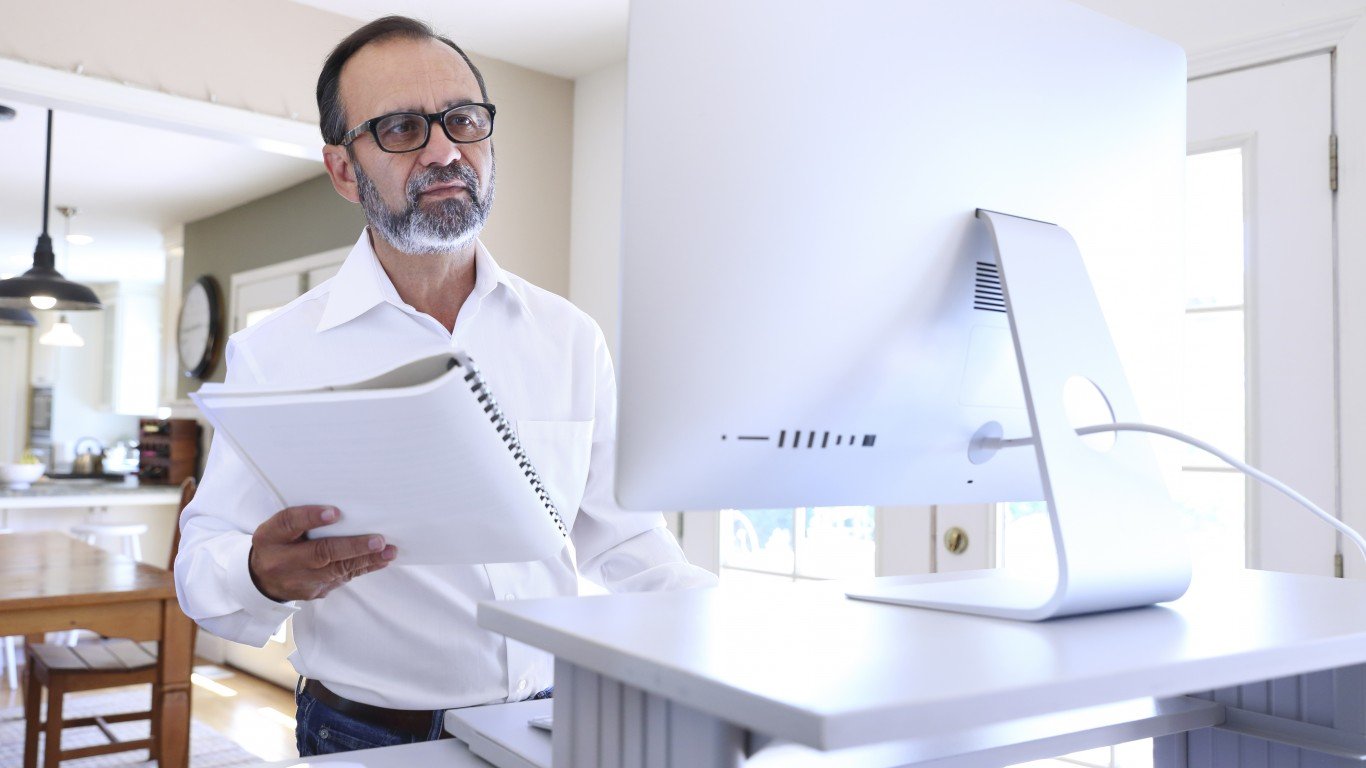
17. Use a standing desk
Ask any health expert and he or she will tell you that sitting is the new smoking. Working out and eating healthy foods is the best way to lose weight and maintain a healthy weight, but when working out is not an option while you work, help yourself by using a standing desk. You’ll burn more calories than you will while sitting down. In fact, when compared to a whole afternoon of sedentary work, an equal amount of time spent standing has been shown, according to a British study, to burn 174 additional calories.
